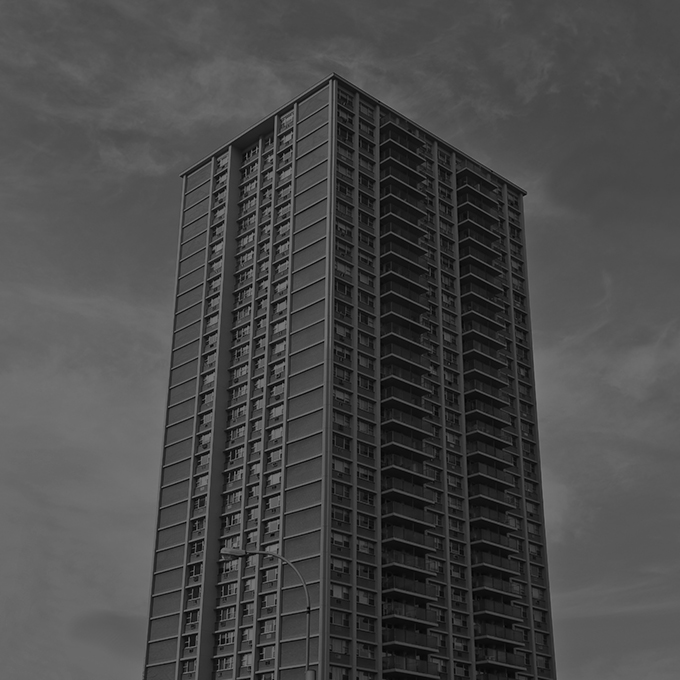Rents Moving UP in Toronto
Financial Post - Colin McGlellan
The rent increases were small, but marked a turning point. Toronto’s average rents per square foot increased 2 per cent (six cents per square foot) in the first quarter to $3.12 per square foot at the end of June, according to the surveys by Urban Analytics, a Vancouver-based real estate data provider. Still, vacancy rates increased, reflecting new supply and the lingering exodus of residents from some neighbourhoods.
“Apartment rents increased for the first time in a year and a half in Toronto during the second quarter and also rose in Calgary as the impact of the pandemic receded, new studies show.”
Calgary’s average apartment rents rose 3 per cent (five cents) to $2.08 per square foot during the same period. Vacancy rates fell to their lowest level in almost two years. Average rents in Calgary hit a bottom of about $1.90 late last year before rebounding in the first quarter of 2021.
Toronto’s “increase in rents can be attributed to owners reducing the value of incentives offered,” UA analyst Kendall Brown said in a e-mailed reply to questions. “It shows that developers are willing to get competitive again as demand increases” with international students and professionals returning to the downtown core, he said.
Brown predicts a return to pre-COVID-19 rents in Toronto over “the next couple of quarters.”
Toronto rents had been falling from an average of about $3.65 a square foot near the end of 2019 until the report showed its first uptick in this year’s second quarter.
“An emerging buyer trend of investors from Vancouver and Toronto seeking to purchase condominiums as long-term rental properties was reported by several project representatives across the market,” UA said in the report. “This points to the anticipated increase in demand in the rental market as travel restrictions are lifted and immigration levels” rebound, it said.
UA’s snapshot of Toronto rents focuses on 58 properties it tracks across the Greater Toronto Area. Mississauga, in that area’s western part, showed the largest drop in vacancies because of uptakes at a few developments, while Toronto’s midtown reported the largest increase in vacancies. Downtown, uptown, Etobicoke (western Toronto) and Brampton (northwest of Toronto) all showed modest increases in vacancies.
The report confirmed the core exodus is continuing, with smaller apartments showing more turnover among renters than larger ones. Some renters took advantage of lower rents to upgrade, others left to buy houses.
“Two bedroom units in inner-city neighbourhoods are often rented by roommates, which leads to a higher turnover rate,” UA said in the report. “Smaller one bedroom units also have a higher turnover rate than other unit types due to renters determining they require more living space. In other cases, the unit is occupied by a couple who decide to purchase a home.”

WHY REAL ESTATE IS GOOD IN TROUBLED TIMES
Globe and Mail
When is a good time to invest in residential real estate? For many people the answer is simple – now.
Taken over a long period of time, owning residential property has been a solid investment for Canadians. For example, according to the most recent data from the Canadian Real Estate Association (CREA) in its MLS® Home Price Index, in January 2005 the benchmark price in Canada was $242,700 for a home and in July of this year it was $736,000.
“Real estate traditionally is one of the least volatile and most stable assets over time and particularly during turbulent times, such as we’re seeing right now during the pandemic,” says Jennifer Hunt, a national real estate investment expert, a former vice-president with the Real Estate Investment Network and now founder of the Real Estate Wealth Lab. “It’s not only stable but it performs over the long term.”
Hunt says that, at the beginning of the COVID-19 pandemic, capital that had been deployed in stocks or other investments veered more toward real estate because investors were seeking stability over the long term.
For those interested in residential real estate investment, there are a number of ways it can be done. The first and most popular is buying a property and then hopefully watching its value increase over time. Homeowners increase their wealth as the equity grows in their home. A second popular real estate investment channel is buying a property and then renting it out. Not only is the owner gaining a regular stream of revenue from that property but equity is also being built and the overall value of the property too has the potential to increase over time.
Also, investors can turn to Real Estate Investment Trusts (REITs), which invest in income-producing properties.
Other options include fixing a property and then flipping it for profit, or hanging onto it and then renting it out. A less well-known strategy is what’s called a vendor take-back mortgage, in which the seller of the home lends money to the buyer for the purchase of their own property, which can earn interest and have tax advantages for the seller.
When considering how best to invest, having a game plan and doing plenty of research are key. What do you need your asset to do for you? If you want immediate cash flow, renting out might be a good option, whereas a buy-and-hold strategy is a long-term play in which you are building wealth over the long haul.
RETAIL SALES DOWN JULY 2021
StatsCan
Retail sales fell 0.6% to $55.8 billion in July, the third decrease in four months. The decline was primarily driven by lower sales at food and beverage stores (-3.4%) and building material and garden equipment and supplies dealers (-7.3%). In July, much of the country continued to implement reopening measures, which eased restrictions on both retailers and services.
Sales decreased in 5 of 11 subsectors, representing 38.7% of retail trade. Core retail sales—which exclude gasoline stations and motor vehicle and parts dealers—decreased 1.3%. In volume terms, retail sales decreased 1.1% in July.
Posting its second consecutive decline, sales at food and beverage stores subsector were down 3.4%. Lower sales were observed in all four store types in this subsector, led by supermarkets and other grocery stores (-3.4%). Beer, wine, and liquor stores posted its first decline in three months, decreasing 2.7% in July. The drop at food and beverage stores coincided with the easing of COVID-19-related restrictions on food service and drinking places throughout the country. In July, more consumers returned to restaurants and patios to enjoy the summer weather amid eased capacity restrictions.
Sales at building material and garden equipment and supplies dealers were down for a fourth consecutive month, falling 7.3% in July. Despite the decline, the level of sales in July was elevated compared with pre-pandemic levels.
Sales at clothing and clothing accessories stores subsector increased 7.6% in July, reaching its highest level since the onset of the pandemic. Gains were spread across all three store types in this subsector, led by jewellery, luggage, and leather goods stores (+33.7%). In July, 1.5% of clothing and clothing accessories stores were closed, while 18.2% of stores in this subsector reported closures in June.
RECENT SALES
2622 KEELE STREET - NORTH YORK - $3,700,000 / $336,365 Per Suite / 4.65% Cap Rate
This property comprises an 11 suite walk up rental apartment building investment just south of Highway 401. It is 3 stories and was built in 1954 and is a concrete structure in average shape for its age. This is a low maintenance building with no underground garage, balconies or elevator. Surface parking spaces are at the rear and there is small detached garage. The building is heat HWG and tenants pay their own hydro. The property was fully marketed and with multiple interest and the bid winner was a private investor. There were 6 suites vacant at the time of sale and rental upside of over 40%. This property was sold by the Apartment Group.
278 ST. VICENT STREET - BARRIE – $7,090,000 / $305,000 Per Suite / 4.30% Cap Rate
This property is located in east Barrie in a residential neighbourhood. It consists of a single 27 suite walk up rental apartment building constructed in the 1960's. The building is concrete with brick exterior, double windows and some balconies. The property had below market rents and tenants paid their own hydro. There is a mixture of one and two bedrooms sites with the average size being around 775 sf. 17 suites were fully renovated at the time of sale. The property fully marketed and was purchased by a private investor.
39 LEDUC DRIVE - ETOBICOKE - $2,665,000 / $205,000 Per Suite / 2.75% Cap Rate
This property is located in a C location in mid Etobicoke near Islington and Highway 401. It is a half acre site improved with a 3 storey walk up rental apartment building with a total of 23 suites. It is of frame construction with brick exterior and flat roof. It was built in the 1950's has 12 parking spaces and has hot water has heating. It has a mixture of one and two bedroom suites and rents below market. This property sold to a private investor and appears to not have been openly marketed.
262 JARVIS STREET - TORONTO - $23,385,000 / $329,365 Per Suite
Located in downtown Toronto, this is the sale of a mid rise 71 suite rental apartment building will all small bachelor suites built in 1929. The building is just south of Gerrard Street and a 5 minute walk to Ryerson University. Reportedly the building sold at full occupancy and over $600,000 was spent by the Seller in the past two years. The building contains one elevator and no on site parking. While sitting on 0.26 acres the property was purchased as an investment by Dream. The asset was fully marketed.
THE APARTMENT GROUP
Together the team has completed over 1,500 transactions and has sold over $6.5 billion in apartments and development land. Put us to work for you and see the results. NO ONE has sold more buildings then our group. Experience, knowledge and professionalism will insure you get the right deal or the highest price if you are selling.
The Apartment Group is a dedicated team of professionals specializing in the sale of multi-residential investment properties. With over 40 years of combined experience, the team brings together their strengths including strong negotiation and sales skills along with highly technical market analysis and appraisal methods.
We are a boutique Brokerage but have the capabilities of the larger houses without the overhead. We have: an internal database of over 10,500 active apartment and land Buyers; a list of all apartment building owners in the Greater Toronto Area; our web site gets over 50,000 hits a month; we highlight properties for sale through our newsletter which reaches 10,000 investors monthly.
MITCHELL CHANG
President & Owner,
Salesperson
Direct: 416-907-8280
mchang@cfrealty.ca
LORENZO DIGIANFELICE, AACI
Broker of Record, Owner
Direct 416-907-8281
ldigianfelice@cfrealty.ca
JAKE RINGWALD
Salesperson
Direct 416-996-7713
jringwald@cfrealty.ca


